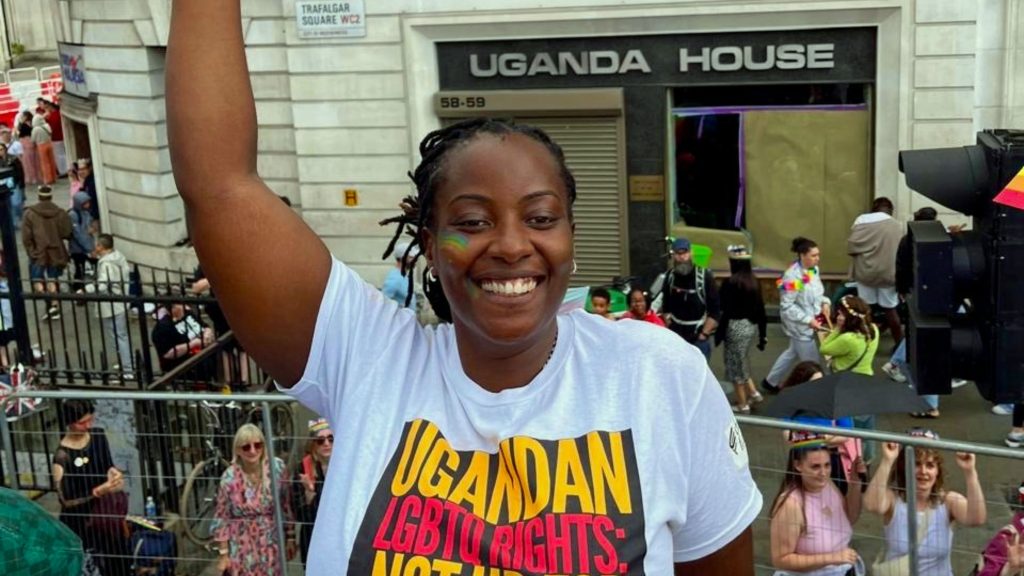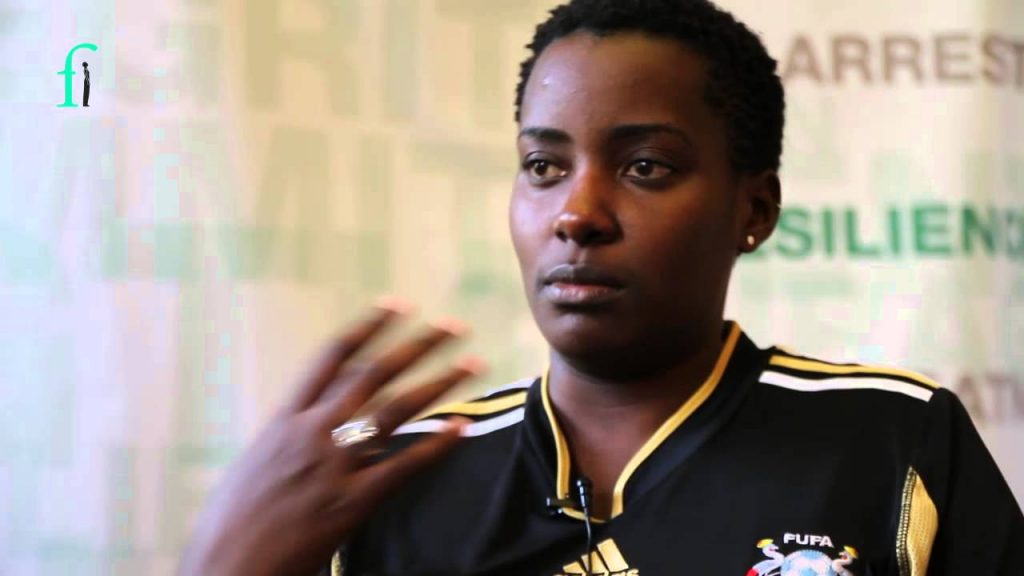Meet the Ugandan LGBTQIA+ activist bringing visibility in a time of crisis
Clare Byarugaba has inspired a generation with her fearless activism

She won the William D. Zabel Human Rights Award. She competed in the Gay Games in Paris. She met the Pope.
But Clare Byarugaba’s heart is in Uganda, where she has fought for LGBTQ+ rights for a decade and a half.
Diva Magazine recently sat down with Byarugaba for an interview. This is a modestly edited excerpt from the resulting article.
Meet the Ugandan LGBTQIA+ activist bringing visibility in a time of crisis
By Ella Gauchi, Diva Magazine
Clare Byarugaba spent a large part of her early life as a “non-practising, god-fearing lesbian” in Uganda. Having been brought up in the Anglican Church, she would go to Church every week, sometimes bringing along friends that she had crushes on. In 2009, she had heard about the Anti Homosexuality Bill that was being discussed in the Ugandan Parliament, but she wasn’t yet part of the activist space. For her, the Church was a “refuge.”
“I’d always believed that the church or religion says come as you are,” Clare tells me. “It doesn’t say change who you are and then come to church.”
However, when she went to Church one day, the pastor told the congregation that they were going to be signing a petition that supported the new Anti Homosexuality Bill. At this point, there was a death penalty clause in the bill, meaning it was dubbed the “Kill The Gays Bill.” As the petition was handed around the Church, Clare knew that she couldn’t sign it.
“It would be signing my own death sentence,” she says.
Angry with the fact that homophobia and transphobia had found their way into her sacred space, Clare realised that silence was not an option anymore. So she crumbled up the petition and left the Church.

Since then, Clare has become one of only a few visible LGBTQIA+ activists in Uganda. In her role as the Diversity, Equity, and Inclusion officer at Chapter Four Uganda, She founded PFLAG-Uganda, a ground breaking project that fosters dialogue and reconciliation between LGBTQIA+ people and their families. She co-organizes Convening for Equality, a community-led movement fighting the 2023 Anti-Homosexuality law. She co-founded Africa’s first LGBTQIA+ swim team, UKAT, using aquatic sport for advocacy. From 2012 to 2014, she coordinated a coalition of 50+ organisations opposing the first draconian anti-LGBTQIA+ legislation. Her honours include the 2011 US State Department Human Rights Defender Award, 2024 William D. Zabel Human Rights Award, and 2023 Embassy of the Netherlands Human Rights Tulip.
Right now, Uganda is not a safe place for LGBTQIA+ people. In 2023, just over a decade after the first anti-LGBTQIA+ bill, Parliament passed the Anti-Homosexuality Act. This included a clause that prescribes life imprisonment for consensual same-sex relations between adults. Clare admits that fighting this new law has been a “heavy burden” on the community.
“I didn’t expect my country to sustain such a relentless effort not just to keep us in the margins but also legalise homophobia, transphobia, hate and discrimination that keep peace-loving Ugandans from enjoying their basic human rights,” she says. “There’s definitely a climate of fear and uncertainty. I know the majority of us are afraid to leave our homes. The majority of us are afraid to lose our jobs.”
The Convening for Equality has documented over 1,550 cases of gross human rights violations of LGBTQIA+ people since new law was passed. These include arbitrary arrest, corrective rape, physical and psychological abuse, degrading forced anal exams, loss of employment, loss of housing, forced evictions and raids on shelters
“I feel very betrayed by my country. I often say that I live in a country I love that doesn’t love me back,” Clare states.
While the fight is very long and arduous, Clare has found light in the work she has done. In particular, her meeting with the Pope last year stands out as a moment of pride in her career. Not just because it was an incredible achievement but also because of the reactions she got online. In particular, an 18-year-old girl reached out to Clare and told her that seeing an Black African lesbian meet the Pope had affirmed and inspired her for the first time.
So how can Clare still find hope in times where optimism seems to be missing?
“[The Ugandan people] have been taught to hate. Therefore, there’s an opportunity that we as activists can work to help them unlearn this hate, despite the volatile operating environment,” she says. “I choose to continue to be visible despite the risk and insecurity that come with it. I do want those that come after us to know that we fought, that we refused to be pushed back into the closet, that we refused to be legislated out of existence.”
Follow Clare on X. You can support Chapter Four Uganda here.




